#Noriko Edano
Photo
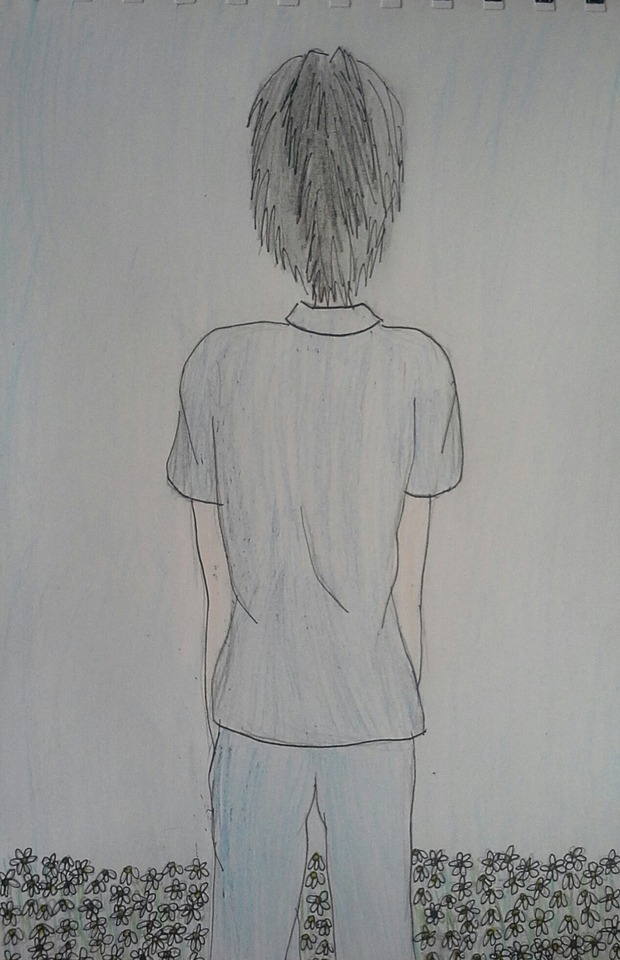


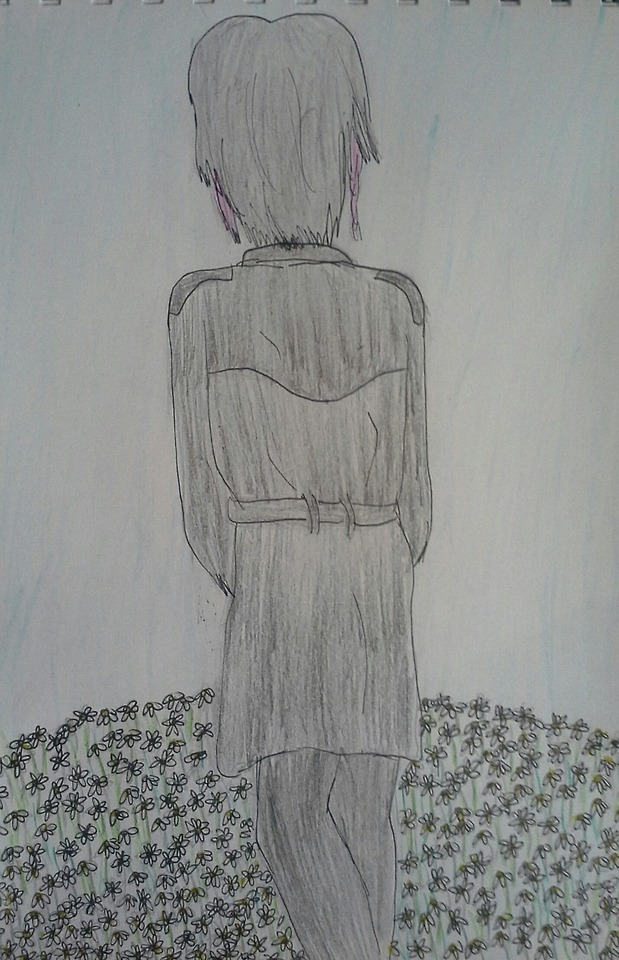


Drawings of the other Survivors in the same style as the drawing of Chieko that’s currently the story’s cover pic. I attempted to draw them at different angles and with slightly different poses, but my sense of perspective is crap and additionally by the time I got to Masashi’s pic I was sick of drawing teeny-tiny daisies, so these probably could have been better. But oh well
(P.S. the daisies have plot relevance, I promise. You’ll just have to wait and see why and how)
#The SHSL Survivors' Society#Tyson De Guerre#Noriko Edano#Masashi Kita#Akira Kazama#Hokuto Nanto#Wakana Abe#hand-drawn#fanfiction#my fanfic#SYOC
4 notes
·
View notes
Photo

shsl survivors’ society aesthetics: noriko edano; former shsl geneticist, survivor
“i just feel that having it all out there in a tangible form would help me to deal with it. move on once and for all.”
#the shsl survivors' society#SHSLSS aesthetics#moodboard#noriko edano#tbh so far this is my least fave bc even after rereading i could only get so much from noriko and pichunting for her was actually p hard#hopefully it still turned out ok
2 notes
·
View notes
Text
Shinzo Abe Appears to Be Headed to Victory and Place in History as Polls Close in Japan
TOKYO — As polls closed in Japan on Sunday after lackluster turnout in national elections, voters appeared to have delivered a victory to the governing party of Shinzo Abe and its allies, according to the public broadcaster NHK, all but ensuring his place in history as the country’s longest-serving prime minister.
It was not yet clear whether Mr. Abe and his allies had also secured two-thirds of the seats in the Upper House of Parliament, a supermajority needed to fulfill his long-cherished ambition of revising a pacifist Constitution that has been in place since American occupiers created it in 1947.
Nevertheless, the projected result represented a striking moment for Mr. Abe, who just a dozen years ago was forced to resign in disgrace after one year as prime minister, following a humiliating defeat of his party in a parliamentary election. Now, Mr. Abe, who returned to power in 2012, is just four months shy of setting Japan’s leadership record.
During the campaign, Mr. Abe did not emphasize his desire to revise the Constitution, On Saturday night at his party’s final campaign rally in Tokyo, supporters waved Japanese flags as Mr. Abe promised to secure the country’s finances and touted his personal relationship with President Trump.
“We will firmly protect Japan,” he said.
Mr. Abe appeared headed to secure the electoral victory despite struggling to accomplish his other professed goals, including turbocharging the economy, raising the country’s sluggish birthrate or dramatically increasing the proportion of women in management and politics. In many ways, Mr. Abe’s success stems from the lack of a strong opposition rather than a public mandate for his party’s vision.
“The opposition is no good,” said Makoto Mugikura, 68, a voter who had wandered into the rally not as an ardent supporter but because he happened to be drinking in the neighborhood. “There is nothing but the Liberal Democrats.”
With five major opposition parties, many voters have a hard time keeping them straight. New parties crop up in each election as old parties split and reconstitute.
“The opposition’s problem comes down to marketing and identity,” said Jeffrey W. Hornung, a political scientist at the RAND Corporation who focuses on Japan. “It’s hard to be able to have any sort of consistent voice when you come and go with different elections, and Abe and the L.D.P. have been able to capitalize on that.”
Some of the opposition parties hoped to distinguish themselves by putting forward more female candidates.
Under a law enacted last year, Japan’s political parties are encouraged to strive for gender parity in their candidates. A record 28 percent of candidates in the election on Sunday are women, with the Constitutional Democratic Party fielding a slate that is almost half female.
While Mr. Abe often says he envisions a society in which “women can shine,” fewer than one in six candidates for the Liberal Democratic Party are women, and there is only one woman in his cabinet.
Mr. Abe’s agenda for women is “window dressing,” said Noriko Sakoh, the author of “Doing Too Much Housework Will Destroy Japan.” She pointed to government policies such as tax abatements for husbands whose wives do not work and persistent waiting lists for government-subsidized day care despite the low birthrate.
Ms. Sakoh said she was attracted to a new progressive party called Reiwa Shinsengumi, which is backing a range of candidates from diverse backgrounds, including a single mother and two people with physical disabilities. On Sunday evening, Kyodo News said that Yasuhiko Funago, a candidate who uses a wheelchair and has amyotrophic lateral sclerosis, had won a seat.
In a country where one-fifth of the population is now 70 or older, all the major parties focused on the national pension system during the campaign.
Just under two months before the election, the Financial Services Agency, a government regulator, warned that the country’s social security system would not be able to support the living standards of the elderly through retirement. Given the long life expectancies in Japan, the agency’s report suggested that an average couple would need an additional 20 million yen, or about $185,000, to live comfortably.
Officials in the Abe administration swiftly repudiated the report, and on the campaign trail Mr. Abe promised to increase annual pensions for low-income retirees by about $560.
Such pledges rang hollow to some protesters who showed up for Mr. Abe’s final rally on Saturday, shouting “Abe quit!” and “Don’t bully poor people!”
Mr. Abe has said the government will fund the payments by encouraging more women and the elderly to work, and his party has vowed to raise the country’s consumption tax to 10 percent in the fall, as previously scheduled.
All five major opposition parties have said they would not raise the tax, although Yukio Edano, leader of the Constitutional Democrats, says the government has a responsibility to secure the retirement of its citizens.
“Isn’t it the job of the government to figure out how we can build a system that will work even if people don’t save 20 million yen?” he said last month.
In his final campaign speech on Saturday, Mr. Abe dismissed the opposition’s criticism.
“Regarding pensions and other social security benefits, the opposition parties are only fanning unease among the people without presenting alternative plans,” he said. “Without raising burdens, we cannot increase social security.”
A supporter at the rally said he did not plan to depend on the government for his retirement.
“I will take care of myself,” said Ichiro Hasumi, 65, a retired shipping company worker who said he was voting for Mr. Abe’s party because “he will best protect the national interest.”
“It’s Japan first,” he added.
Mr. Abe has worked hard to establish himself as a leader on the world stage, persistently courting Mr. Trump and working to improve ties with President Xi Jinping of China. During Mr. Trump’s visit to Japan in May, the relationship seemed to pay off when the American president said on Twitter that he would hold off on thorny trade negotiations until after the Japanese election this month.
For the opposition, it can be hard to counter such symbols of Mr. Abe’s power. It is also difficult to break through to a public that values stability or offer compelling new ideas for how to solve the country’s most difficult long-term problems, which are dictated by the demographics of a declining population and aging society.
“The challenges that Japan faces are very complicated, so there are in general not a lot of easy answers,” said Kristi Govella, assistant professor of Asian studies at the University of Hawaii at Manoa. “Opposition parties tend to get pushed into an anti-Abe or anti-status-quo position, and that can be a difficult place to build a base of new, exciting policy ideas from.”
Credit: Source link
The post Shinzo Abe Appears to Be Headed to Victory and Place in History as Polls Close in Japan appeared first on WeeklyReviewer.
from WeeklyReviewer https://weeklyreviewer.com/shinzo-abe-appears-to-be-headed-to-victory-and-place-in-history-as-polls-close-in-japan/?utm_source=rss&utm_medium=rss&utm_campaign=shinzo-abe-appears-to-be-headed-to-victory-and-place-in-history-as-polls-close-in-japan
from WeeklyReviewer https://weeklyreviewer.tumblr.com/post/186445131602
0 notes
Text
Shinzo Abe Appears to Be Headed to Victory and Place in History as Polls Close in Japan
TOKYO — As polls closed in Japan on Sunday after lackluster turnout in national elections, voters appeared to have delivered a victory to the governing party of Shinzo Abe and its allies, according to the public broadcaster NHK, all but ensuring his place in history as the country’s longest-serving prime minister.
It was not yet clear whether Mr. Abe and his allies had also secured two-thirds of the seats in the Upper House of Parliament, a supermajority needed to fulfill his long-cherished ambition of revising a pacifist Constitution that has been in place since American occupiers created it in 1947.
Nevertheless, the projected result represented a striking moment for Mr. Abe, who just a dozen years ago was forced to resign in disgrace after one year as prime minister, following a humiliating defeat of his party in a parliamentary election. Now, Mr. Abe, who returned to power in 2012, is just four months shy of setting Japan’s leadership record.
During the campaign, Mr. Abe did not emphasize his desire to revise the Constitution, On Saturday night at his party’s final campaign rally in Tokyo, supporters waved Japanese flags as Mr. Abe promised to secure the country’s finances and touted his personal relationship with President Trump.
“We will firmly protect Japan,” he said.
Mr. Abe appeared headed to secure the electoral victory despite struggling to accomplish his other professed goals, including turbocharging the economy, raising the country’s sluggish birthrate or dramatically increasing the proportion of women in management and politics. In many ways, Mr. Abe’s success stems from the lack of a strong opposition rather than a public mandate for his party’s vision.
“The opposition is no good,” said Makoto Mugikura, 68, a voter who had wandered into the rally not as an ardent supporter but because he happened to be drinking in the neighborhood. “There is nothing but the Liberal Democrats.”
With five major opposition parties, many voters have a hard time keeping them straight. New parties crop up in each election as old parties split and reconstitute.
“The opposition’s problem comes down to marketing and identity,” said Jeffrey W. Hornung, a political scientist at the RAND Corporation who focuses on Japan. “It’s hard to be able to have any sort of consistent voice when you come and go with different elections, and Abe and the L.D.P. have been able to capitalize on that.”
Some of the opposition parties hoped to distinguish themselves by putting forward more female candidates.
Under a law enacted last year, Japan’s political parties are encouraged to strive for gender parity in their candidates. A record 28 percent of candidates in the election on Sunday are women, with the Constitutional Democratic Party fielding a slate that is almost half female.
While Mr. Abe often says he envisions a society in which “women can shine,” fewer than one in six candidates for the Liberal Democratic Party are women, and there is only one woman in his cabinet.
Mr. Abe’s agenda for women is “window dressing,” said Noriko Sakoh, the author of “Doing Too Much Housework Will Destroy Japan.” She pointed to government policies such as tax abatements for husbands whose wives do not work and persistent waiting lists for government-subsidized day care despite the low birthrate.
Ms. Sakoh said she was attracted to a new progressive party called Reiwa Shinsengumi, which is backing a range of candidates from diverse backgrounds, including a single mother and two people with physical disabilities. On Sunday evening, Kyodo News said that Yasuhiko Funago, a candidate who uses a wheelchair and has amyotrophic lateral sclerosis, had won a seat.
In a country where one-fifth of the population is now 70 or older, all the major parties focused on the national pension system during the campaign.
Just under two months before the election, the Financial Services Agency, a government regulator, warned that the country’s social security system would not be able to support the living standards of the elderly through retirement. Given the long life expectancies in Japan, the agency’s report suggested that an average couple would need an additional 20 million yen, or about $185,000, to live comfortably.
Officials in the Abe administration swiftly repudiated the report, and on the campaign trail Mr. Abe promised to increase annual pensions for low-income retirees by about $560.
Such pledges rang hollow to some protesters who showed up for Mr. Abe’s final rally on Saturday, shouting “Abe quit!” and “Don’t bully poor people!”
Mr. Abe has said the government will fund the payments by encouraging more women and the elderly to work, and his party has vowed to raise the country’s consumption tax to 10 percent in the fall, as previously scheduled.
All five major opposition parties have said they would not raise the tax, although Yukio Edano, leader of the Constitutional Democrats, says the government has a responsibility to secure the retirement of its citizens.
“Isn’t it the job of the government to figure out how we can build a system that will work even if people don’t save 20 million yen?” he said last month.
In his final campaign speech on Saturday, Mr. Abe dismissed the opposition’s criticism.
“Regarding pensions and other social security benefits, the opposition parties are only fanning unease among the people without presenting alternative plans,” he said. “Without raising burdens, we cannot increase social security.”
A supporter at the rally said he did not plan to depend on the government for his retirement.
“I will take care of myself,” said Ichiro Hasumi, 65, a retired shipping company worker who said he was voting for Mr. Abe’s party because “he will best protect the national interest.”
“It’s Japan first,” he added.
Mr. Abe has worked hard to establish himself as a leader on the world stage, persistently courting Mr. Trump and working to improve ties with President Xi Jinping of China. During Mr. Trump’s visit to Japan in May, the relationship seemed to pay off when the American president said on Twitter that he would hold off on thorny trade negotiations until after the Japanese election this month.
For the opposition, it can be hard to counter such symbols of Mr. Abe’s power. It is also difficult to break through to a public that values stability or offer compelling new ideas for how to solve the country’s most difficult long-term problems, which are dictated by the demographics of a declining population and aging society.
“The challenges that Japan faces are very complicated, so there are in general not a lot of easy answers,” said Kristi Govella, assistant professor of Asian studies at the University of Hawaii at Manoa. “Opposition parties tend to get pushed into an anti-Abe or anti-status-quo position, and that can be a difficult place to build a base of new, exciting policy ideas from.”
Credit: Source link
The post Shinzo Abe Appears to Be Headed to Victory and Place in History as Polls Close in Japan appeared first on WeeklyReviewer.
from WeeklyReviewer https://weeklyreviewer.com/shinzo-abe-appears-to-be-headed-to-victory-and-place-in-history-as-polls-close-in-japan/?utm_source=rss&utm_medium=rss&utm_campaign=shinzo-abe-appears-to-be-headed-to-victory-and-place-in-history-as-polls-close-in-japan
from WeeklyReviewer https://weeklyreviewer.tumblr.com/post/186445131602
0 notes
Text
Shinzo Abe Appears to Be Headed to Victory and Place in History as Polls Close in Japan
TOKYO — As polls closed in Japan on Sunday after lackluster turnout in national elections, voters appeared to have delivered a victory to the governing party of Shinzo Abe and its allies, according to the public broadcaster NHK, all but ensuring his place in history as the country’s longest-serving prime minister.
It was not yet clear whether Mr. Abe and his allies had also secured two-thirds of the seats in the Upper House of Parliament, a supermajority needed to fulfill his long-cherished ambition of revising a pacifist Constitution that has been in place since American occupiers created it in 1947.
Nevertheless, the projected result represented a striking moment for Mr. Abe, who just a dozen years ago was forced to resign in disgrace after one year as prime minister, following a humiliating defeat of his party in a parliamentary election. Now, Mr. Abe, who returned to power in 2012, is just four months shy of setting Japan’s leadership record.
During the campaign, Mr. Abe did not emphasize his desire to revise the Constitution, On Saturday night at his party’s final campaign rally in Tokyo, supporters waved Japanese flags as Mr. Abe promised to secure the country’s finances and touted his personal relationship with President Trump.
“We will firmly protect Japan,” he said.
Mr. Abe appeared headed to secure the electoral victory despite struggling to accomplish his other professed goals, including turbocharging the economy, raising the country’s sluggish birthrate or dramatically increasing the proportion of women in management and politics. In many ways, Mr. Abe’s success stems from the lack of a strong opposition rather than a public mandate for his party’s vision.
“The opposition is no good,” said Makoto Mugikura, 68, a voter who had wandered into the rally not as an ardent supporter but because he happened to be drinking in the neighborhood. “There is nothing but the Liberal Democrats.”
With five major opposition parties, many voters have a hard time keeping them straight. New parties crop up in each election as old parties split and reconstitute.
“The opposition’s problem comes down to marketing and identity,” said Jeffrey W. Hornung, a political scientist at the RAND Corporation who focuses on Japan. “It’s hard to be able to have any sort of consistent voice when you come and go with different elections, and Abe and the L.D.P. have been able to capitalize on that.”
Some of the opposition parties hoped to distinguish themselves by putting forward more female candidates.
Under a law enacted last year, Japan’s political parties are encouraged to strive for gender parity in their candidates. A record 28 percent of candidates in the election on Sunday are women, with the Constitutional Democratic Party fielding a slate that is almost half female.
While Mr. Abe often says he envisions a society in which “women can shine,” fewer than one in six candidates for the Liberal Democratic Party are women, and there is only one woman in his cabinet.
Mr. Abe’s agenda for women is “window dressing,” said Noriko Sakoh, the author of “Doing Too Much Housework Will Destroy Japan.” She pointed to government policies such as tax abatements for husbands whose wives do not work and persistent waiting lists for government-subsidized day care despite the low birthrate.
Ms. Sakoh said she was attracted to a new progressive party called Reiwa Shinsengumi, which is backing a range of candidates from diverse backgrounds, including a single mother and two people with physical disabilities. On Sunday evening, Kyodo News said that Yasuhiko Funago, a candidate who uses a wheelchair and has amyotrophic lateral sclerosis, had won a seat.
In a country where one-fifth of the population is now 70 or older, all the major parties focused on the national pension system during the campaign.
Just under two months before the election, the Financial Services Agency, a government regulator, warned that the country’s social security system would not be able to support the living standards of the elderly through retirement. Given the long life expectancies in Japan, the agency’s report suggested that an average couple would need an additional 20 million yen, or about $185,000, to live comfortably.
Officials in the Abe administration swiftly repudiated the report, and on the campaign trail Mr. Abe promised to increase annual pensions for low-income retirees by about $560.
Such pledges rang hollow to some protesters who showed up for Mr. Abe’s final rally on Saturday, shouting “Abe quit!” and “Don’t bully poor people!”
Mr. Abe has said the government will fund the payments by encouraging more women and the elderly to work, and his party has vowed to raise the country’s consumption tax to 10 percent in the fall, as previously scheduled.
All five major opposition parties have said they would not raise the tax, although Yukio Edano, leader of the Constitutional Democrats, says the government has a responsibility to secure the retirement of its citizens.
“Isn’t it the job of the government to figure out how we can build a system that will work even if people don’t save 20 million yen?” he said last month.
In his final campaign speech on Saturday, Mr. Abe dismissed the opposition’s criticism.
“Regarding pensions and other social security benefits, the opposition parties are only fanning unease among the people without presenting alternative plans,” he said. “Without raising burdens, we cannot increase social security.”
A supporter at the rally said he did not plan to depend on the government for his retirement.
“I will take care of myself,” said Ichiro Hasumi, 65, a retired shipping company worker who said he was voting for Mr. Abe’s party because “he will best protect the national interest.”
“It’s Japan first,” he added.
Mr. Abe has worked hard to establish himself as a leader on the world stage, persistently courting Mr. Trump and working to improve ties with President Xi Jinping of China. During Mr. Trump’s visit to Japan in May, the relationship seemed to pay off when the American president said on Twitter that he would hold off on thorny trade negotiations until after the Japanese election this month.
For the opposition, it can be hard to counter such symbols of Mr. Abe’s power. It is also difficult to break through to a public that values stability or offer compelling new ideas for how to solve the country’s most difficult long-term problems, which are dictated by the demographics of a declining population and aging society.
“The challenges that Japan faces are very complicated, so there are in general not a lot of easy answers,” said Kristi Govella, assistant professor of Asian studies at the University of Hawaii at Manoa. “Opposition parties tend to get pushed into an anti-Abe or anti-status-quo position, and that can be a difficult place to build a base of new, exciting policy ideas from.”
Credit: Source link
The post Shinzo Abe Appears to Be Headed to Victory and Place in History as Polls Close in Japan appeared first on WeeklyReviewer.
from WeeklyReviewer https://weeklyreviewer.com/shinzo-abe-appears-to-be-headed-to-victory-and-place-in-history-as-polls-close-in-japan/?utm_source=rss&utm_medium=rss&utm_campaign=shinzo-abe-appears-to-be-headed-to-victory-and-place-in-history-as-polls-close-in-japan
0 notes
Photo
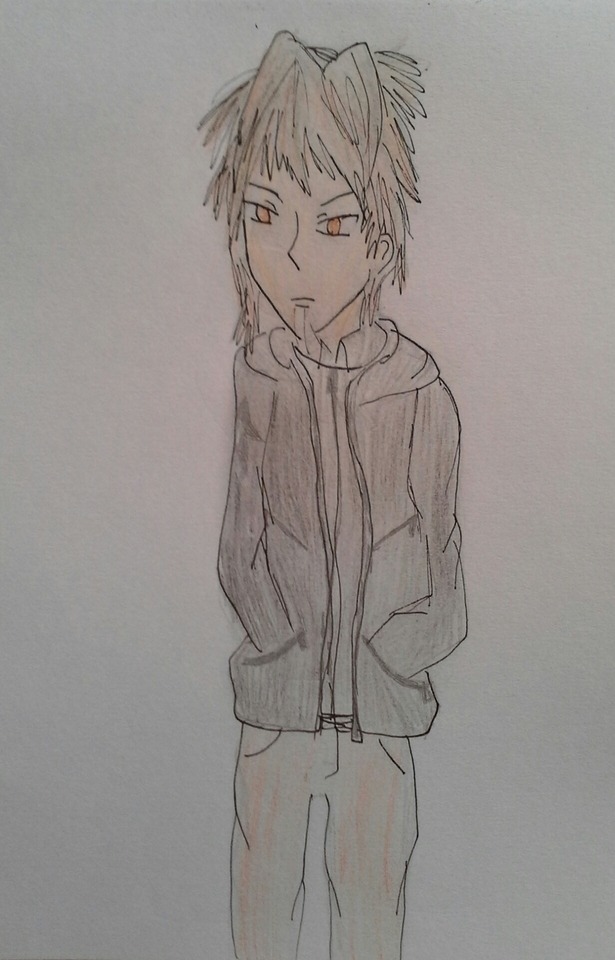
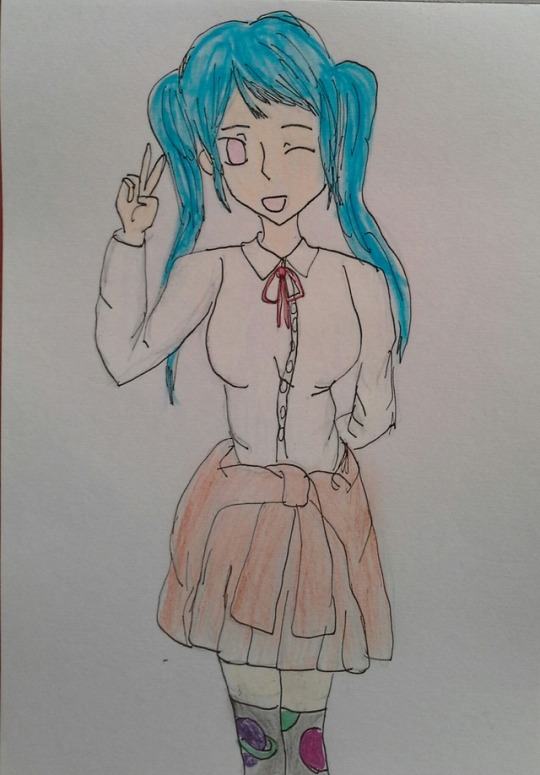


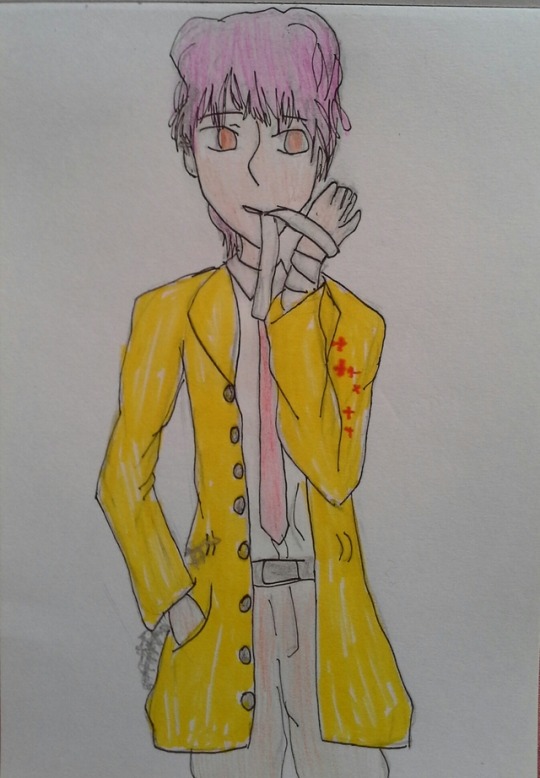
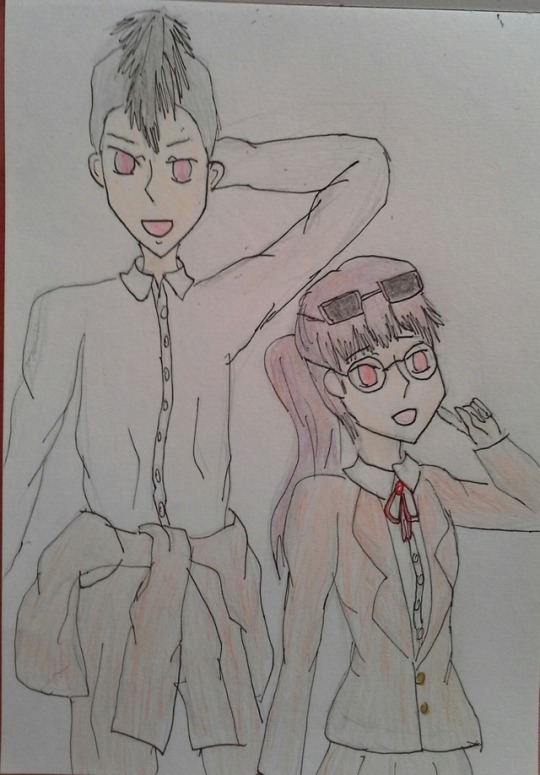

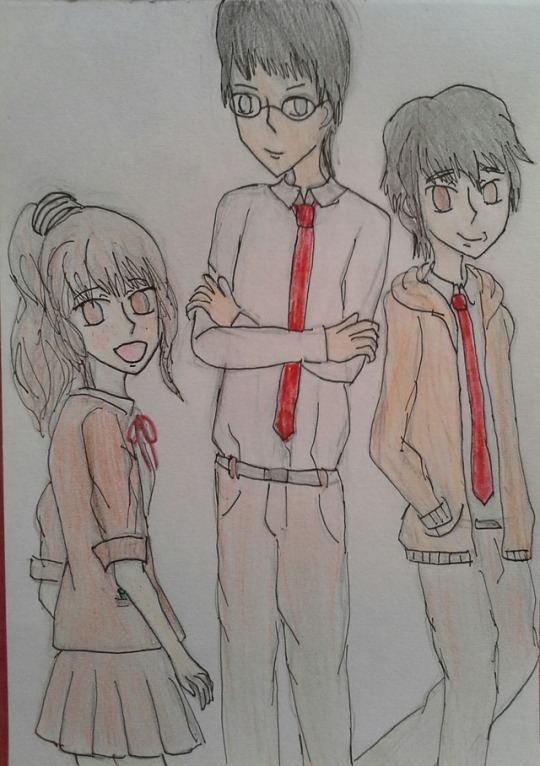
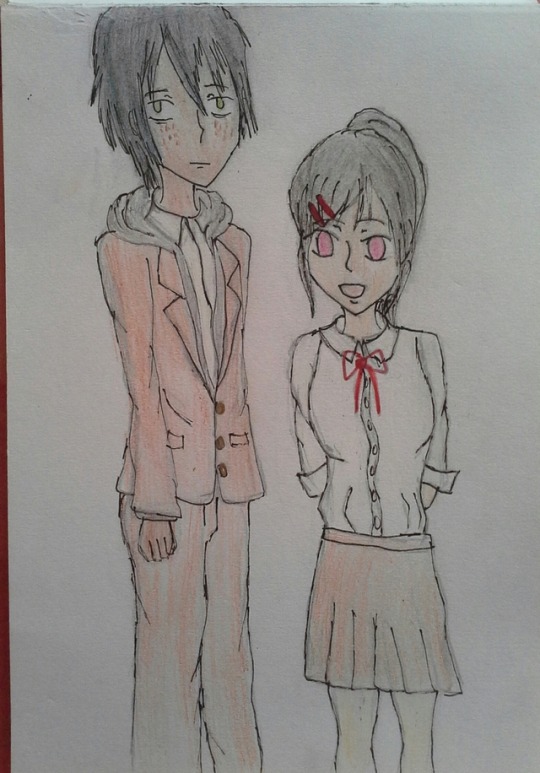
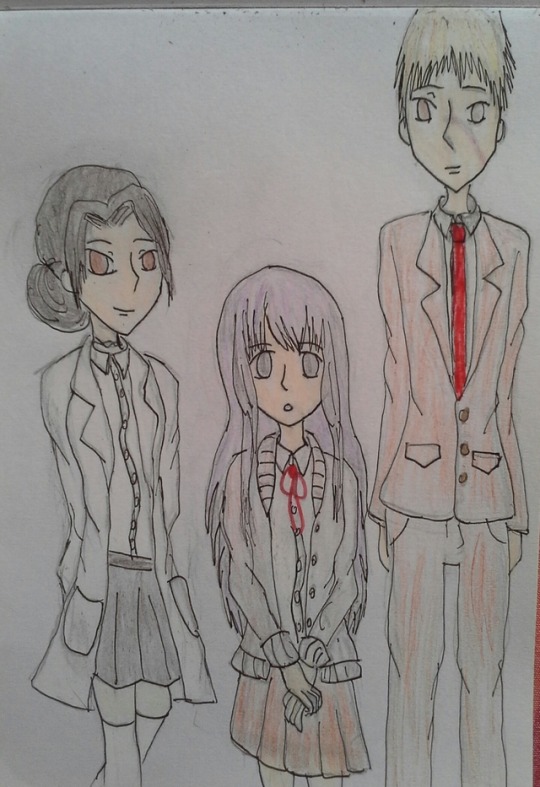
And here we finally have it, the drawings I did of the SHSL Survivors Society cast as they appeared in their Hope's Peak days.Between trying to make sure the amount of overall pictures could fit in one photoset and despairing over my not-sp-great eraser, A5 sketchbook and the fact I'd never drawn a Mohawk or a beard of any sort, some of it was difficult, but I managed. So yeah, I hope you'll like these pictures
I haven't the slightest clue if Tumblr will post the pictures in the order they're arranged while I'm typing this, but underneath this chunky paragraph is a list of who is in each picture, going from the top to the bottom of how I'm looking at the pictures, and then where there is more than one character, I will name them from left to right. But hopefully from what's been described of them all in-story it should be easy to figure out who is who. So, here goes:
-Hideki
-Hokuto
-Oshiro and Erica
-Shiro
-Hironori
-Masashi and Noriko
-Hibiki and Akira
-Wakana, Daisuke and Kimihiro
-Koutarou and Chieko
-Kanekatsu, Yashiro and Tyson
Their full names and respective creators can be found on my FF profile
#fanart#The SHSL Survivors' Society#Dangan Ronpa#fanfiction#hand-drawn#Chieko Akamine#Koutarou Ueda#Wakana Abe#Daisuke Ueno#Shiro Usami#Nobuyuki Oshiro#Masashi Kita#Noriko Edano#Hironori Nobunaga#Hideki Inoue#Hokuto Nanto#Tyson De Guerre#Erica Cain#Yashiro Tsukishima#Kanekatsu Iwafusa#Kimihiro Arata#Hibiki Kazama#Akira Kazama#OC#SYOC
8 notes
·
View notes
Text
The SHSL Survivors’ Society-second generation headcanons
As promised, here it is! Shizuka is included in this list too, but she is of course not my creation. All the other kids mentioned are though, but not all of them have information about them beyond name and date of birth, because there’s a lot of kids here and coming up with that much info is...tricky.
Anyway, enjoy!:
Survivors’
Chieko Akamine and Koutarou Ueda
Shizuka Akamine (surname later changes to Kita), DOB 3rd December 2010. Appears prominently over the course of the story as a six-year-old and has a POV in the final epilogue as a 16-year-old. Shizuka is the first of the second generation, and also has the distinction of being the only one who has a parent who died in the game as well, and because of that tends to feel a greater responsibility for remembering the events that happened and preserving those memories for future generations. She is shy as a small child, but mostly grows out of that over the course of her life-though she remains a quiet sort of person. She is kind, sweet and thoughtful, and adores animals to the point of becoming a vet in her adulthood (as well as helping out at the Towa City Memorial Garden). She takes to calling her little sister ‘Mushi’ (bug) as an affectionate sort of nickname in the same sort of way Koutarou used to call Chieko ‘Moyashi’, and when she eventually has a child of her own, she names him Koutarou.
Chieko Akamine and Masashi Kita
Haruka Kita, DOB March 13th 2023. Definitely the more extrovert sibling of the two, Haruka is sunny-natured and a little bit of a tomboy, preferring to keep her hair shorter and avoid dresses where possible (much to the despair of her aunt Misa). Though there’s a slightly more parental aspect to their relationship owing to the age gap, Haruka is close to her big sister (even if she gets annoyed at the nickname). She’s also particularly close to her cousin Hayate (see below) as they’re the same age separated by a few months. She becomes interested in gardening at a young age, and though for her it’s little more than a hobby/pastime, Haruka’s gardening helps Chieko to feel like she’s got that aspect of her life back in some respect and so though she doesn’t directly help out, the mother and daughter bond a lot over gardening.
Tyson De Guerre and Wakana Abe
Felix Shouta De Guerre, DOB May 26th 2025. As a child, Felix’s speech is delayed and he struggles in school, resulting in him becoming generally unconfident and shy. He looks up to Tyson a lot, and visiting and helping to maintain the Towa City Memorial Garden does boost his confidence, and as an adult he goes to live in Japan, becoming the main gardener/groundskeeper for the garden.
Oliver “Olly” Kanato De Guerre, DOB August 1st 2028. A dreamy, absent-minded sort of person, Olly is always getting into scrapes due to not paying attention to his surroundings or just losing track of time. But he’s so good natured and amiable that it’s really difficult for anyone to ever get angry with him.
Verity “Vivi” Suzune De Guerre, DOB January 14th, 2031. The adored youngest child, Vivi is basically a ray of sunshine in the way her mother was pre-game, though she tends to be more honest with her feelings. She’s pretty proud of her mixed-race ancestry, and always introduces herself by her full name. Though she is musically and artistically adept, she doesn’t ever pursue either of these things beyond the hobby level.
Akira Kazama
Nanako Kazama (former surname Sawatori), DOB October 31st 2008, fostered January 2020, adopted end of that year. She is streetwise and hot-tempered, and doesn’t trust many people outside of her adoptive family, and the Survivors and their families.
Yuichi Kazama (former surname Ishi), DOB November 12th 2010, fostered April 2021, adopted March 2022. When he got fostered by Akira he ended up in the same elementary school as Tsubaki Higuchi, and as a result is fairly close friends with both her and Shizuka. He is a bit grouchy and puts on a tough-guy act a lot, but he looks up to Akira in a big way and follows in his footsteps to become a very popular Student Council President in his high school.
Kai Kazama (former surname Takamura), DOB April 5th, 2013, fostered June 2021, adopted same time as Yuichi. A sporty and determined person, Kai eventually becomes a skilled and successful baseball player with a huge fanbase.
Siblings/Friends etc.
Kazuki Kita (Masashi’s older brother) and Orihime Nanto (Hokuto’s little sister)
(Note: yes, this means that Chieko’s, Masashi’s and Hokuto’s families are all related by marriage)
Daigo Kita, DOB October 9th 2020. Level-headed, sensible and a bit of an old soul, Daigo takes an interest in Café Tanabata from a young age and helps out there a lot even before he decides that he’ll take it over as an adult with the help of his little brother. Given to talking in riddles, especially when he’s annoyed or tired.
Hayate Kita, DOB October 9th 2023. A combination of being impulsive and forever salty about the fact his birthday falls on the same day as his older brother’s, Hayate is more often arguing with Daigo. Luckily, despite this they get on inexplicably well, which is a good thing considering they eventually take over Café Tanabata from their mother and aunt. He’s an extroverted joker type of person.
Hikari Kita (Masashi’s younger sister)
Kyohei Matsushita, DOB October 12th 2019. Fairly calm, amiable boy who is rather introverted and can end up overwhelmed by his extended family, all of whom he loves dearly. Ends up in the same elementary and middle schools as Athena and Lexie Cain (see below), and the same high school as Lexie, and thus is friends with them.
Benjamin ‘Ben’ Cain (Erica’s sister)
Athena Cain, DOB October 17th 2017. Cheerful and outgoing like her late aunt, but less intense and generally more thoughtful. Though she takes an interest in mythology due to her name, she isn’t actually all that interested in history (sure, her family’s past interests her, but she hasn’t got the history obsession her late aunt did). She becomes a storywriter and artist instead.
Alexandria ‘Lexie’ Cain, DOB February 21st 2019. A charismatic, attractive girl, Lexie is enigmatic and slightly manipulative but in spite of this (or possibly because of this) she is very popular. She can be a bit prissy sometimes as well, but would put her life on the line for anyone she actually cares about (which is a very few people). She has a crush on Kyohei in high school, but is far too stubborn to admit it because he’s not her usual ‘type’ and she knows too well that he only sees her as a friend.
Yasu Kazama (Akira’s older sister)
Akiko ‘Kiko’ Shimada, DOB April 25th 2020. The eldest twin by nine minutes, Kiko is academic and driven, but despite this is compelled to become a voice actor like her late aunt. Though never as popular as Hibiki was, she does do quite well for herself, and after a while decides to become a coach for voice-actors.
Akemi ‘Emi’ Shimada, DOB April 25th 2020. Though identical to Kiko, Emi is quieter and struggles academically, and often feels like she is just a pale imitation of her sister and that she doesn’t fit in with her family, despite the fact they do clearly love and value her just as much. She takes an interest in the Towa City Memorial Garden, and as an adult is one of the people in charge of the funds that help to maintain and organise it, as well as the employment of people who do the actual maintaining and organising.
Sadao Taneda and Ayame Edano (Noriko’s childhood friend and little sister, respectively)
Airi Taneda, DOB September 30th 2024. Born with albinism, Airi’s birth is what helps her mother and her aunt have a closer relationship, as Ayame often seeks advice from Noriko about how to help her. Unlike Noriko, Airi is never embarrassed by her white hair and indeed likes to learn elaborate hairstyles to show it off, something which eventually leads to her becoming a hairdresser.
Toshio Taneda, DOB June 14th 2026. Quiet, slightly socially awkward, and very intelligent, Toshio basically spends his whole life in education-from being a complete swot in school to pursuing an academic career relating to maths and physics.
Yuuji Taneda, DOB July 7th 2030. Between Airi’s outspokenness and Toshio’s nerdiness, Yuuji finds himself embarrassed by his elder siblings constantly, and tries to distance himself from them in public, but he does love them really, and if anyone else teases them he will be on them like a shot. Indeed, he gets into a lot of fights in school because of defending people from bullies.
Hitoshi Edano (Noriko’s younger brother)
Isamu Edano, DOB December 9th 2026
Yura Edano, DOB May 24th 2029
Chikako Ueno (Daisuke’s older sister)
Daisuke ‘Isuke’ Hiraoka (surname later changes to Ikeda with Chikako’s second marriage), DOB February 26th, 2024. Eccentric and slightly flamboyant, this Daisuke actually can play musical instruments, and eventually becomes a professional clarinet player. Isuke is also the classic slightly over-protective brother who scares his siblings’ boyfriends/girlfriends. Also, nobody knows where his nickname came from or why-nobody admits to giving it to him.
Souta Hiraoka (surname later changes to Ikeda with Chikako’s second marriage), DOB August 21st 2026
Rie Ikeda, DOB July 18th 2032
Yumi Ikeda, DOB January 31st 2035
Shouta Kobayashi (Oshiro’s friend)
Hiroto Kobayashi, DOB May 1st, 2031
Mio Fujioka (Oshiro’s friend)
Masahiro Fujioka, DOB April 18th, 2032. A devilish, charming prankster, Masahiro is the type of person who just sails through life. He looks for every opportunity to pull off a prank or some sort of joke, and the twin-switch one used to be one of his favourites as a kid-or rather, it was until he decided to pull it on their mother and she freaked out when she realised. Though he’s well aware of the Killing Game and the Despair cult and all that, and that she knew someone who had died there, he’s never probed too deeply into why she had this reaction, as he feels vaguely uncomfortable thinking about all this.
Takeo Fujioka, DOB April 18th, 2032. A little more calm and straight-laced, Takeo is nonetheless a very fun-loving guy who generally enjoys taking part in Masahiro’s pranks, but naturally refuses the twin-switch ones after the reaction their mother had. He takes more of an interest in the past than Masahiro, so he knows more about what lay behind their mother’s reaction, and as it happens, he does pursue becoming a historian as a career because of this.
Atsushi and Kanade Arata (Kimihiro’s parents)
Hisae Arata, DOB April 6th, 2018. Though very much unexpected and unplanned, she ends up being the thing that puts back together her parents’ marriage, which had been slowly disintegrating under the grief for the older brother she never knew. With a name written with the characters for ‘long time’ and ‘blessing’, her parents have heaped a lot of love on her and are very protective of her, meaning she grows up living a sheltered life. As a result, she is a very sweet, very shy and soft type of person who ends up heavily dependent on others to look after her.
Tetsuya Yamaguchi (Kimihiro’s friend)
Taro Yamaguchi, DOB February 10th, 2025. He is slightly spoiled because he was the only child his parents were able to have, so sometimes he comes across a little entitled and haughty and coddled. But really, deep down, he’s a good guy, and does well in life. Not stunning or outstanding, but well. He also inherits his father’s whimsical approach to acquiring hobbies, and thus he tends to be interesting company in parties with all sorts of tricks and anecdotes to pull out.
Ichiro Usami (Shiro’s brother)
Shiro Usami, DOB March 5th, 2022
Akane Usami, DOB April 26th, 2024
Midori Usami, DOB May 30th, 2027
Gin Usami, DOB June 17th 2030
Yujiko Usami (Shiro’s sister)
Nanae Aikawa, DOB June 18th 2021
Namika Aikawa, DOB September 3rd 2023
Natsumi Aikawa, DOB January 14th 2030
Zenzo Usami (Shiro’s brother)
Aiki Usami, DOB February 2nd 2023
Goromi Usami (Shiro’s sister)
Kanon Tajima, DOB August 25th 2025
Kanade Tajima, DOB November 3rd 2030
Hotaru Mori (Hideki’s accquaintance)
Shiki Mori, DOB March 31st 2032. Reclusive as her mother, but probably a bit more practical and assertive, generally speaking.
#fanfiction#The SHSL Survivors' Society#second generation#second gen#headcanons#danganronpa#my fanfiction
2 notes
·
View notes
Text
The SHSL Survivors' Society: Class 78 birthdays
I mentioned I would do this at the end of Scraps of the Past 10, so here it is. The numbers in brackets are the ages they were when they started at Hope's Peak-the ages I would have been given in the forms for each character. So, anyway, here it is:
Koutarou Ueda-20th April (17)
Hibiki Kazama-6th June (17)
Akira Kazama-6th June (17)
Wakana Abe-21st June (17)
Hokuto Nanto-7th July (17)
Shiro Usami-23rd July (17)
Hironori Nobunaga-28th July (18)
Kimihiro Arata-3rd September (17)
Erica Cain-31st October (17)
Tyson De Guerre-11th November (17)
Chieko Akamine-25th November (16)
Hideki Inoue-19th December (17)
Kanekatsu Iwafusa-21st December (17)
Nobuyuki Oshiro-21st December (18)
Daisuke Ueno-1st March (17)
Yashiro Tsukishima-13th March (16)
Noriko Edano-14th March (17)
Masashi Kita-26th March (17)
#The SHSL Survivors' Society#It's listed April-March because of the Japanese school year#miscellaneous#trivia#DR SYOC#fanfiction#character info#too lazy to tag all the character names but ehh whatever#my fanfiction#character birthdays#do any of you share a birthday with one of the characters?#I don't but Hokuto's is the day after mine#lots of summer babies here#and March babies
2 notes
·
View notes